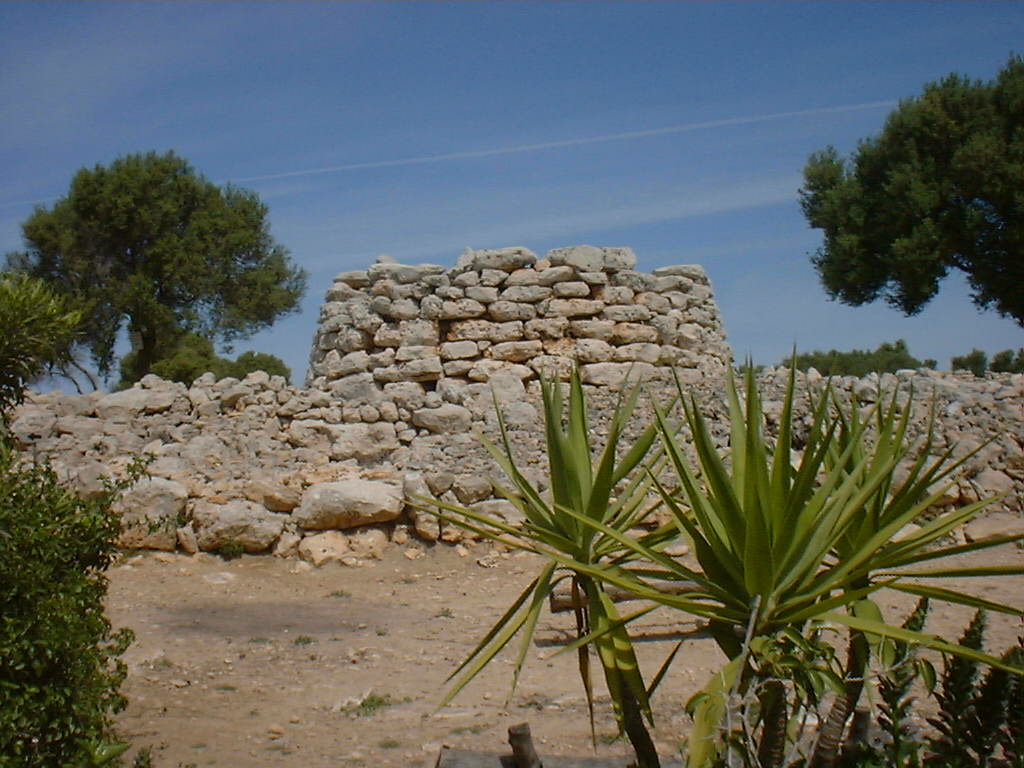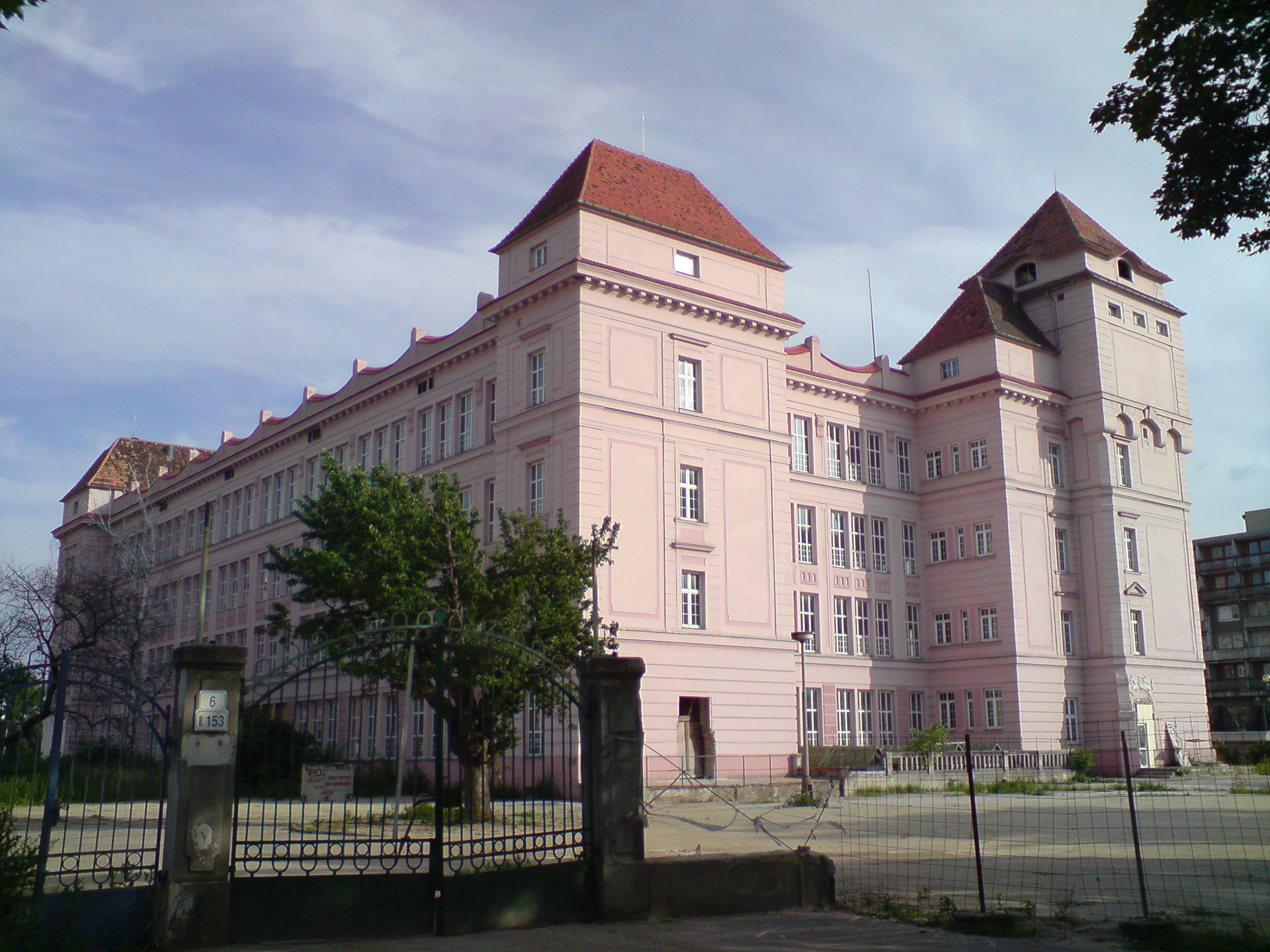|
Esporles
Esporles () is a locality and Spanish municipality of the autonomous community of the Balearic Islands. Situated on the island of Majorca, around the zone of the Serra de Tramuntana. It's about 15 km from Palma de Mallorca. The town is divided into Vilavella and Vilanova. In its territory it also includes small urbanizations, like Ses Rotgetes de Canet y Es Verger. Its economy was traditionally based on agriculture and animal husbandry, which is shown in its mansion farm-museum La Granja. Tourism, like in most of the Balearic Islands is now the base of its economy. The textile industry was also very important in its economy, but in the present day there only remain traces of the factories or buildings. Some to this day remain empty but most have been transformed into housing. One of the biggest factories was transformed into the local library Sa Fabrica (opened in 2010). Administration Constitutional mayors (present-1979) Monuments * Parochial church of Sant Pere * Cor de ... [...More Info...] [...Related Items...] OR: [Wikipedia] [Google] [Baidu] |
Miquel Ensenyat
Miquel Ensenyat Riutort (born 30 October 1969) is a Spanish politician of the party Més per Mallorca. He was the mayor of Esporles (2005–2015), the president of the Island Council of Mallorca (2015–2019) and his party's leader in the Parliament of the Balearic Islands (2019–). Biography Ensenyat was born in Banbury, Oxfordshire, England to Mallorcan immigrants. He graduated in Social Education, and also studied theology and philosophy before moving to the town of Esporles at the age of 24. In 2003, Ensenyat was the lead candidate of the Socialist Party of Majorca (PSM) in the municipal elections in Esporles. They lost to the People's Party (Spain), People's Party (PP), but through a Motions of no confidence in Spain, motion of no confidence, he became mayor in 2005, serving for a decade. In 2011, he was elected to Mallorca's Island Council as third in Més's list, and was an unsuccessful candidate 2011 Spanish general election, in elections to the Congress of Deputies. En ... [...More Info...] [...Related Items...] OR: [Wikipedia] [Google] [Baidu] |
Majorca
Mallorca, or Majorca, is the largest of the Balearic Islands, which are part of Spain, and the List of islands in the Mediterranean#By area, seventh largest island in the Mediterranean Sea. The capital of the island, Palma, Majorca, Palma, is also the capital of the autonomous communities of Spain, autonomous community of the Balearic Islands. The Balearic Islands have been an autonomous region of Spain since 1983. There are two small islands off the coast of Mallorca: Cabrera, Balearic Islands, Cabrera (southeast of Palma) and Dragonera (west of Palma). The anthem of Mallorca is "La Balanguera". Like the other Balearic Islands of Menorca, Ibiza, and Formentera, the island is a highly popular holiday destination, particularly for tourists from the Netherlands, Republic of Ireland, Ireland, Germany, and the United Kingdom. The international airport, Palma de Mallorca Airport, is one of the busiest in Spain; it was used by 28 million passengers in 2017, with use increasing ever ... [...More Info...] [...Related Items...] OR: [Wikipedia] [Google] [Baidu] |
Autonomous Communities Of Spain
The autonomous communities () are the first-level political divisions of Spain, administrative divisions of Spain, created in accordance with the Constitution of Spain, Spanish Constitution of 1978, with the aim of guaranteeing limited autonomy to the nationalities and regions of Spain, nationalities and regions that make up Spain. There are 17 autonomous communities and two autonomous cities (Ceuta and Melilla) that are collectively known as "autonomies". The two autonomous cities have the right to become autonomous communities. The autonomous communities exercise their right to self-government within the limits set forth in the constitution and Organic Law (Spain), organic laws known as Statute of Autonomy, Statutes of Autonomy, which broadly define the powers that they assume. Each statute sets out the devolved powers () for each community; typically those communities with stronger local nationalism have more powers, and this type of devolution has been called ''asymmetric ... [...More Info...] [...Related Items...] OR: [Wikipedia] [Google] [Baidu] |
Textile Industry
The textile industry is primarily concerned with the design, production and distribution of textiles: yarn, cloth and clothing. Industry process Cotton manufacturing Cotton is the world's most important natural fibre. In the year 2007, the global yield was 25 million tons from 35 million hectares cultivated in more than 50 countries. There are five stages of cotton manufacturing: * Cultivating and harvesting * Preparatory processes * Spinning — giving yarn * Weaving — giving fabrics * Finishing — giving textiles In the textile industry, textile engineering is an area of engineering that involves the design, production, and distribution of textile products through processes including cultivation, harvesting, spinning, weaving, and finishing of raw materials, encompassing both natural and synthetic fibers. Synthetic fibres Artificial fibres can be made by extruding a polymer, through a spinneret (polymers) into a medium where it hardens. Wet spinning (rayon) uses a c ... [...More Info...] [...Related Items...] OR: [Wikipedia] [Google] [Baidu] |
PSOE
The Spanish Socialist Workers' Party ( , PSOE ) is a Social democracy, social democratic Updated as required.The PSOE is described as a social-democratic party by numerous sources: * * * * List of political parties in Spain, political party in Spain. The PSOE has been in government longer than any other political party in modern democratic Spain: from 1982 to 1996 under Felipe González, 2004 to 2011 under José Luis Rodríguez Zapatero, and since 2018 under Pedro Sánchez. The PSOE was founded in 1879, making it the oldest party currently active in Spain. The PSOE played a key role during the Second Spanish Republic, being part of the coalition government from 1931 to 1933 and 1936 to 1939, when the republic was defeated in the Spanish Civil War. The party was then banned under the Francoist Spain, Francoist dictatorship and its members and leaders were persecuted or exiled; the ban was only lifted in 1977 in the Spanish transition to democracy, transition to democracy. His ... [...More Info...] [...Related Items...] OR: [Wikipedia] [Google] [Baidu] |
Guillermo Bosch
Guillermo () is the Spanish form of the male given name William. The name is also commonly shortened to 'Guille' or, in Latin America, to nickname 'Memo'. People * Guillermo Amador (born 1974), American musician *Guillermo Amor (born 1967), Spanish football manager and former player *Guillermo Arévalo (born 1952), a Shipibo shaman and ''curandero'' (healer) of the Peruvian Amazon; among the Shipibo he is known as Kestenbetsa *Guillermo Barros Schelotto (born 1973), Argentine former football player * Guillermo Bermejo (born 1975), Peruvian politician * Guillermo C. Blest (1800–1884), Anglo-Irish physician settled in Chile *Guillermo Cañas, Argentine tennis player * Guillermo Chong, Chilean geologist *Guillermo Coria, another Argentine tennis player *Guillermo Dávila, Venezuelan actor and singer *Guillermo Díaz (actor) (born 1975), American actor of Cuban descent *Guillermo Diaz (basketball), Puerto Rican basketball player for the Los Angeles Clippers *Guillermo del Toro, Mexic ... [...More Info...] [...Related Items...] OR: [Wikipedia] [Google] [Baidu] |
Partido Popular (España)
{{Disambiguation, political ...
Partido Popular may refer to: * People's Party (Panama) * People's Party (Spain, 1976), dissolved in 1977 * People's Party (Spain), founded in 1989 * The original name of the Popular Socialist Party (Mexico) * Partido Popular Democrata, original name of the Social Democratic Party (Portugal) The Social Democratic Party ( , PSD) is a liberal-conservative political party in Portugal that is currently the country's ruling party. Commonly known by its colloquial initials PSD, on ballot papers its initials appear as its official form ... [...More Info...] [...Related Items...] OR: [Wikipedia] [Google] [Baidu] |
Agriculture
Agriculture encompasses crop and livestock production, aquaculture, and forestry for food and non-food products. Agriculture was a key factor in the rise of sedentary human civilization, whereby farming of domesticated species created food surpluses that enabled people to live in the cities. While humans started gathering grains at least 105,000 years ago, nascent farmers only began planting them around 11,500 years ago. Sheep, goats, pigs, and cattle were domesticated around 10,000 years ago. Plants were independently cultivated in at least 11 regions of the world. In the 20th century, industrial agriculture based on large-scale monocultures came to dominate agricultural output. , small farms produce about one-third of the world's food, but large farms are prevalent. The largest 1% of farms in the world are greater than and operate more than 70% of the world's farmland. Nearly 40% of agricultural land is found on farms larger than . However, five of every six farm ... [...More Info...] [...Related Items...] OR: [Wikipedia] [Google] [Baidu] |
Animal Husbandry
Animal husbandry is the branch of agriculture concerned with animals that are raised for meat, animal fiber, fibre, milk, or other products. It includes day-to-day care, management, production, nutrition, selective breeding, and the raising of livestock. Husbandry has a long history, starting with the Neolithic Revolution when animals were first Domestication, domesticated, from around 13,000 BC onwards, predating farming of the History of agriculture, first crops. During the period of ancient societies like ancient Egypt, cattle, sheep, goats, and pigs were being raised on farms. Major changes took place in the Columbian exchange, when Old World livestock were brought to the New World, and then in the British Agricultural Revolution of the 18th century, when livestock breeds like the English Longhorn, Dishley Longhorn cattle and Lincoln (sheep), Lincoln Longwool sheep were rapidly improved by agriculturalists, such as Robert Bakewell (agriculturalist), Robert Bakewell, to yi ... [...More Info...] [...Related Items...] OR: [Wikipedia] [Google] [Baidu] |
Balearic Islands
The Balearic Islands are an archipelago in the western Mediterranean Sea, near the eastern coast of the Iberian Peninsula. The archipelago forms a Provinces of Spain, province and Autonomous communities of Spain, autonomous community of Spain, with Palma de Mallorca being its capital and largest city. Formerly part of the Kingdom of Majorca, Kingdom of Mallorca, the islands were made a province in the 19th century provincial division, which in 1983 received a Statute of Autonomy of the Balearic Islands, Statute of Autonomy. In its later reform of 2007, the Statute designates the Balearic Islands as one of the ''nationalities and regions of Spain, nationalities'' of Spain. The official Languages of Spain, languages of the Balearic Islands are Catalan language, Catalan and Spanish language, Spanish. The archipelago islands are further grouped in western Pityusic Islands, Pytiuses (the largest being Ibiza and Formentera), and eastern Gymnesian Islands, Gymnesians (the largest bein ... [...More Info...] [...Related Items...] OR: [Wikipedia] [Google] [Baidu] |




